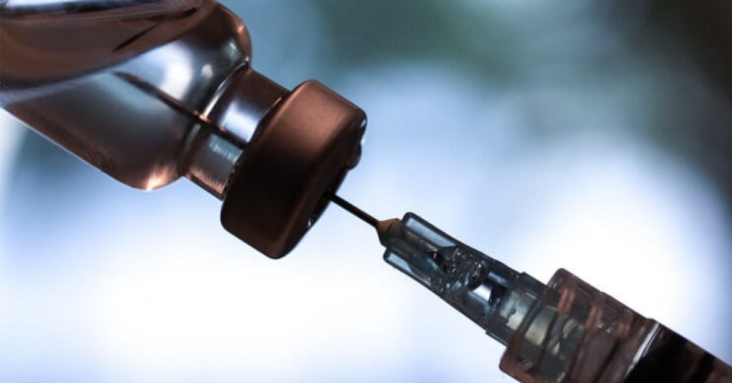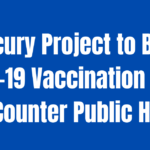
American confidence in the Centers for Disease Control and Prevention (CDC) is being tested once again as a new study shows that hundreds of young children are “unable to do normal activities after [receiving] a second dose” of the COVID vaccine.
The FDA and CDC continue to recommend wearing masks and vaccines for toddlers amid multiple studies showing those protocols are ineffective, unwarranted or dangerous. The Washington Times ran a headline titled: “CDC is a bureaucratic mess that should be abolished.”
The embattled CDC received a report on Sept. 1, showing that more than “55 percent of children ranging in age between 6 months and 2 years had a ‘systemic reaction’ after their first dose of the Pfizer-BioNTech or Moderna COVID-19 vaccines,” according to The Epoch Times.
The study also found that approximately 60% of children experienced an adverse reaction to the second dose of the Moderna vaccine.
The CDC study involved more than 13,000 children.
The sobering report noted that a systemic reaction “is a response beyond the injection site.” It noted that “while the most common systemic reactions were fatigue, fever, irritability, and crying,” parents of “more than 6 percent of children in the study reported their child was unable to perform normal activities after the second dose of either the Pfizer-BioNTech or Moderna vaccine,” according to the Epoch Times.
The study received data from parents between June 18 and Aug. 21. Parents reported reactions through a new V-Safe phone app for seven days after their children received a COVID-19 vaccination.
Precisely 55.7% of parents reported a systemic reaction after their child received the first Moderna vaccine. Approximately 58% of parents reported a reaction after the second dose. Approximately 56% of parents reported a systemic reaction after their child received the first Pfizer vaccine and about 47% after receiving a second dose of the vaccine.
Parents of about 10% of children 6 months to 2 years who participated in the study reported a “health impact.” A “health impact” is a general category for more serious adverse reactions. Those who received the Moderna vaccine reported slightly higher health impact rates after receiving a second dose when compared with the Pfizer vaccine.
The study results were presented to the CDC’s Advisory Committee on Immunization Practices (ACIP) on Sept. 1. No policy changes have yet been reported.
Meanwhile, the U.S. government continues to require federal employees, including members of the military, to be vaccinated, and the CDC website continues to direct parents and teachers to encourage children to have “trust and confidence in COVID-19 vaccines.”
Tom Shimabukuro, head of the CDC’s vaccine safety team, dismissed the recent study, telling committee members that no “statistical signals of COVID-19 vaccine reactions were found in young children in the VSD data.” He added that systemic reactions were “commonly reported” following vaccines.
Not all agree with the CDC’s assessment. Dr. Meryl Nass of Children’s Health Defense, for example, urges parents to exercise caution in light of the reported reactions.
Citing the “high number of systemic reactions reported among very young children,” Nass told The Epoch Times on Sept. 2 that she questioned “why the government doesn’t collect and present more information on these cases.”
“That stuff is not considered by the CDC to be very important … It’s assumed that all those side effects go away after a few days and leave the people perfectly well,” she said, mentioning the fevers and fatigue.
However, Nass warned, “Those reactions may, in fact, be harbingers of more serious reactions, but nobody to my knowledge has published anything looking at whether these acute local or systemic reactions are indicators of a later problem.”
The FDA approved the emergency-use authorization of COVID-19 vaccines for children aged 6 months to 5 years on June 17. It is estimated that June 18 through Aug. 31 about 1 million doses of the Moderna and Pfizer vaccines were administered to children 6 months to 4 years old.
The VAERS adverse reaction reporting system, which acknowledges that most adverse reactions are not reported to their system, reports that between June 18 and Aug. 31 there were 496 reports of adverse events for children (aged 6 months to 4 years) who received the Pfizer vaccine and 521 adverse reactions in children aged 6 months to 5 years who received the Moderna vaccine.
Though the CDC considers most adverse reactions to be “non-serious events,” about 220 children in the study required a visit to an emergency room, including a 2-year-old boy in Arizona who experienced a “life-threatening episode” two days after receiving a COVID vaccination.



